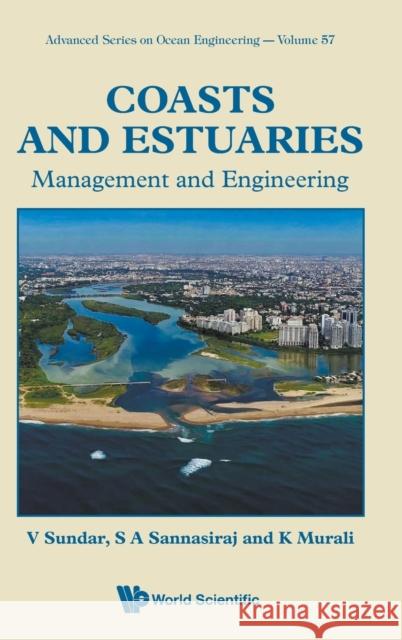Coasts and Estuaries: Management and Engineering » książka
Coasts and Estuaries: Management and Engineering
ISBN-13: 9789811261800 / Angielski / Twarda / 2022 / 412 str.
Coastlines, like many things around us, are constantly evolving. Keeping pace with the changes and their development is necessary to ensure their stability and to maintain eco-equilibrium for nearshore hydrodynamics and morphodynamics. Supported with field measurements for model validation, several numerical and analytical tools are available to us to understand the physical processes in the vicinity of these water bodies.This book encompasses the engineering principles involved in field data observation, measurement, collection, and processing; the prediction of wave climate and sediment transport using measured field data; numerical modelling involving calibration and validation of the hydrodynamic and morphodynamic processes; and the study of the underlying physical processes and the application of sustainable engineering measures to combat coast- and estuary-related problems.The book has three sections: The first section is an elaboration on the need for and framework of the existing management and engineering notions. The second section details the measurement of the various parameters such as wave climate (offshore and nearshore), shoreline changes, beach profile variation, and sediment transport rates. The third section describes the aspects of wave prediction to arrive at design characteristics and modelling of the hydrodynamic and morphodynamic processes along open coasts and tidal inlets.This book is designed to benefit students pursuing coastal engineering as their field of specialization. It could also serve as a guidebook to engineers, planners, and decision makers working in the fields of coastal, estuarine, and harbour engineering, governmental and private agencies that plan the financial outlay for coastal development projects, and private consultants dealing with maritime hydraulics.











